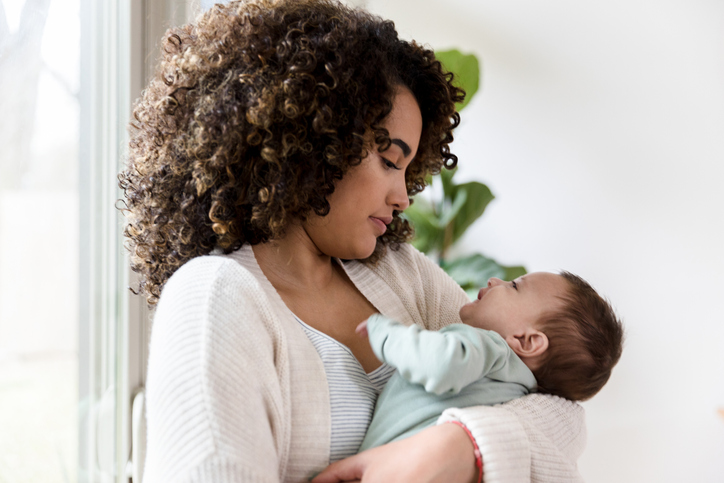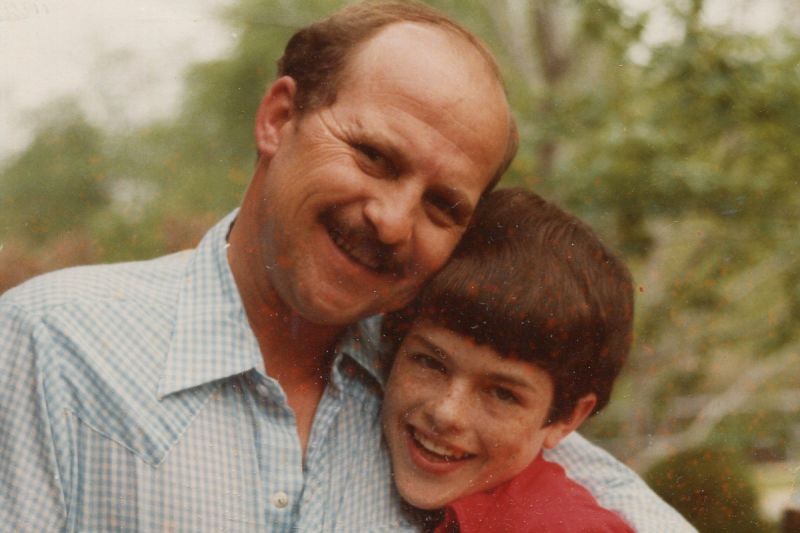What is a Closed Adoption?
What to Know about Having No Contact with Your Child’s Birth Family

If you’re considering adoption in the 21st century, you have undoubtedly seen the term “open adoption” used frequently in your research. Open adoption is the standard today, and for good reason — it has been shown time and time again to be the most beneficial for everyone involved, including birth parents, adoptive parents and, most importantly, adoptees.
But for hopeful parents who are new to and unfamiliar with adoption, it may be difficult to understand all of this emphasis on openness. What’s the big deal? Why is this contact encouraged by so many professionals in the adoption field? And what if your child’s birth parents don’t want this type of relationship with you?
To answer these questions, and to really understand open adoption, you also have to understand the alternative: closed adoption. Below, discover:
If you want to learn more about open adoption, or if you are ready to start your own adoption journey today, you can contact American Adoptions now at 1-800-ADOPTION for additional free information.
A closed adoption is a type of adoption in which the adoptive family and the birth parents share little to no contact with one another. This closed adoption definition also means that identifying information generally remains confidential (for example, details such as last names and personal contact information are often not shared between the birth and adoptive parents). Throughout most of the history of adoption, this was the most common type of relationship between adoptive parents and birth families. Because of the social stigmas around single motherhood, women who were faced with an unplanned pregnancy would often do everything they could to hide it from their friends, family and community. Some women would even be sent away during their pregnancies, returning to their hometowns only after they had given birth to their child, who would be placed for adoption by a doctor or adoption facility — without much (if any) input from the birth mother. With their adoptions shrouded in secrecy, many adoptees grew up never knowing where they came from or how to get in touch with their birth families. Similarly, birth parents lost contact with their children forever, always left to wonder where they had ended up and whether they were doing okay. Many adoptees born during this era have trouble opening their closed adoptions records, even to this day. Unfortunately, this is the image that persists in many people’s minds when they think of adoption today — but the reality is adoption has changed drastically since then. Because of the problems caused by the confidential nature of closed adoptions, open adoptions have risen in popularity in their place. However, that’s not to say that closed adoptions are entirely extinct. While they aren’t as popular as they once were, some prospective birth parents do still prefer closed adoptions over open ones. Keep reading for more information on the closed adoption facts, and what you need to know if this is the type of adoption your child’s prospective birth parents choose.What is a Closed Adoption?
Helpful Information
Pregnant women considering adoption today have more control than ever before over their adoption plans. These prospective birth parents are able to decide what type of relationship they want to have with their child after placing him or her for adoption, and adoption specialists will then help them find an adoptive family who is looking for the same type of relationship. Even if a prospective birth parent wishes to have a closed adoption, they are still in charge of their adoption plan. If they wish, they can still choose their child’s adoptive family and may even decide to have some contact with them before the adoption. Because most expectant parents today — nine out of ten — choose to have an open adoption, American Adoptions (and many other agencies) require prospective adoptive families to be open to the kind of communication most of these prospective birth parents are looking for. This includes contact like:
Essentially, this means that adoptive parents cannot choose closed adoption with our agency. However, every prospective birth parent’s situation is unique, and some may choose not to take advantage of this contact, preferring a more closed adoption. If this is the case in your adoption situation, there will be some unique advantages and disadvantages to be aware of. Like all types of adoptions, closed adoptions have their pros and cons:Closed Adoption Pros and Cons
As you can see, the advantages of closed adoption are few — and most of them apply only in specific situations. However, if a prospective birth parent truly feels that a closed adoption will be best in their situation, it is their right to make that decision, and the adoptive family should respect those wishes.Potential Pros of a Closed Adoption
While a closed adoption might seem like a good idea at first, there are generally more drawbacks than benefits of this type of adoption:Cons of a Closed Adoption
Some hopeful parents can be a little wary of open adoption when they’re first starting the adoption process. It’s common and understandable for these parents to wonder whether they can choose to have a closed adoption instead. Like many other adoption agencies today, American Adoptions does require adoptive parents to be open to a certain standard of communication with their child’s birth parents before and after placement. This is because, as an adoptive family, you will have a very difficult time trying to find a prospective birth mother who is also looking for a closed adoption; in the vast majority of modern adoptions, prospective birth mothers are interested in developing a meaningful relationship with the adoptive family and their child. In fact, closed adoption statistics show that less than 5 percent of prospective birth mothers are interested in this type of adoption today. So, if you are an adoptive family that is only interested in pursuing a closed adoption, you may end up waiting for a very long time to find an adoption opportunity. For this reason, among many others, most adoption agencies only work with adoptive families that are prepared for at least some level of openness with their child’s family. While this may seem intimidating as an adoptive family, rest assured that any adoption specialist will be happy to explain why an open adoption is healthier for everyone involved. They will also be able to provide the guidance and support you need to build a fulfilling relationship with your child’s prospective birth parents. Are Closed Adoptions Still Possible for Adoptive Families Today?
Now that you know a little more about the definition of closed adoption and its pros and cons, you might be curious about the benefits of open adoption and why adoption agencies strongly encourage this contact. Open adoptions, and even semi-open adoptions, have been shown to create a greater satisfaction in the adoption process for everyone involved. If you want to learn more about open adoption, or if you are ready to start your own adoption journey today, you can contact American Adoptions any time for additional free information.Why Should I Explore Other Types of Adoptions?
Disclaimer
Information available through these links is the sole property of the companies and organizations listed therein. American Adoptions provides this information as a courtesy and is in no way responsible for its content or accuracy.

